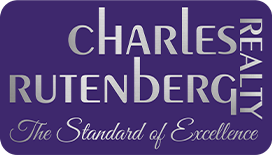
For ambitious individuals seeking rewarding careers, the real estate industry is a promising opportunity. From property management to commercial investments, the possibilities for growth and success are endless.
Additionally, real estate becomes particularly attractive due to its flexibility, high earning potential, and minimal barriers to entry. Unlike many professions that require years of specialized education, real estate is a faster track to skillful success. The licensing requirements are also relatively simple compared to other industries.
However, many aspiring agents often wonder whether a college degree is necessary to begin a career in real estate. That’s why today, we’re exploring the role of higher education in the industry. Understanding the necessary educational requirements can help agents develop the necessary skills needed for long-term success.
Do You Need a Degree to Be a Real Estate Agent?
No! You don’t need a college degree to be a real estate agent. Most states only require a high school diploma or equivalent to start the licensing process. This accessibility is what makes real estate such an appealing profession for individuals with diverse educational backgrounds.
However, a college education can prove highly beneficial within the industry, especially for new agents. College coursework sharpens critical thinking, communication skills, and business acumen that come in handy during real-life transactions. Degree-holding agents also tend to have better negotiation skills and may even grasp the basics of market analysis faster.
College degrees, particularly in real estate, provide specialized knowledge of property laws, finance, and market trends. These programs also train graduates to handle challenging situations and meet their clients needs confidently. And, in certain circumstances, a degree can add credibility to an agent’s business—esepcially with luxury customers who appreciate any additional professional expertise.
Successful professionals understand that, while a college degree may not be mandatory, having one gives them a competitive advantage. Agents who invest in their education tend to close more deals and earn higher commissions throughout their careers.
What Are the Best Real Estate Degree Programs?
Here are some of the best real estate degree programs that strengthen agents’ foundation and boost their professional credibility:
Business Administration
A degree in Business Administration gives agents broad knowledge that applies directly to real estate success. Professionals can learn about financial analyses, marketing strategies, and management principles, which are all key to building sustainable practices.
These skills are especially valuable when an agent decides to launch their own brokerage or expand into property management services. This broad business foundation also allows agents to understand clients needs across all income levels.
Real Estate and Urban Planning
Specialized real estate degrees supply agents with targeted knowledge on property development, zoning laws, and market analysis techniques. Through this, they gain a deeper understanding of how communities grow and evolve, which helps when advising clients on investment opportunities.
This expertise is especially valuable in dynamic markets like Clearwater, where knowing niche details can prove particularly useful. It’s more than just knowing the neighborhood—a competitive agent can provide clients with details on everything from golf courses in Clearwater, FL to the best restaurants in Clearwater. Additionally, urban planning can help professionals identify emerging neighborhoods before they turn into mainstream investment targets.
Finance
Finance degrees give agents an advanced-level understanding of mortgage products, investment analysis, and market economics. This knowledge proves invaluable when working with investors or high-net worth clients who need detailed financial advice.
Agents with a deep understanding of the mechanics of finance can better explain complex loan structures to their clients. They also help their clients evaluate property investments from multiple angles to make better financial decisions. Additionally, the analytical skills developed through finance education in college are essential for helping agents negotiate better terms overall.
What Do You Need to Be a Real Estate Agent?
Becoming a licensed real estate agent involves meeting certain requirements that vary by state:
Be 18 years old or older.
Age requirements ensure agents are mature enough and possess the legal capacity to handle significant financial transactions and client relationships. Most states require candidates to be at least 18 years old before they can apply for a license.
This requirement reflects the significance of real estate transactions along with the legal responsibilities agents are responsible for. Nonetheless, younger agents bring exciting energy and fresh skills to the table that complement more experienced team members at established firms.
Complete pre-licensing courses.
Pre-licensing courses cover real estate laws, ethics, and transaction procedures across the United States. These courses also teach all aspects of contract law and fair housing laws so agents fully understand their legal obligations.
The duration required to complete these courses usually ranges from 40 to 180 hours, depending on the state. Most schools even offer flexible scheduling so that working professionals can complete their education while still working other jobs.
Pass the licensing exam.
The licensing exam is designed to test an agent’s knowledge of real estate principles, state laws, and ethics. Additionally, the exam has both national and state sections, ensuring inspiring agents understand both general and specific laws and procedures. Most states require a score of at least 75% or higher to pass. As a result, passing the exam proves that an agent has the foundational knowledge necessary to serve clients professionally and ethically.
Pass a full background check.
Background checks ensure agents meet the character requirements to handle client funds and confidential information. Here, a professional can expect their past to be thoroughly analyzed to check for criminal records, financial issues, or past professional misconduct. The background check is meant to protect consumer interest and the industry’s reputation.
How to Become a Real Estate Agent Without a Degree
Many individuals build successful careers in real estate without college education by focusing on practical and professional development. Here are some proven ways to thrive as an agent, even without a higher education:
Focus on pre-licensing education.
Pre-licensing courses provide a platform for aspiring agents to learn and acquire necessary skills, similar to what a college education provides. Good programs cover the basics like contract laws, financing options, ethics, and other concepts that facilitate career success.
Many schools offer intensive programs that condense months of learning into a short time frame, allowing agents to proceed to the field quicker. Agents who do well in these courses are equipped with the dedication and knowledge needed for long-term success in the industry.
Gain relevant work experience.
Previous experience in customer service, sales, or business development can translate to real estate success. That’s because people with retail, hospitality, or consulting backgrounds already understand the dynamics of client relationship management and problem solving.
This experience is especially valuable when working with diverse clientele or complex transactions that require patience and creativity. Besides, real-life experience is almost always better than classroom theory alone.
Get certified as a real estate agent.
Professional certifications in real estate demonstrate an agent’s commitment to excellence, providing specialized knowledge that sets them apart. Organizations offer certifications in areas like buyer representation, luxury markets, and commercial transactions. Each of these certifications gives real estate professionals more credibility with specific client types.
Agents who get certified earn higher commissions and more referrals throughout their careers. Getting certified can also translate into continuing education, therefore keeping agents up to date with industry trends and legal changes.
Build a strong professional network.
Networking creates opportunities for mentorship, referrals, and collaborative learning that formal education can’t provide on its own. By actively participating in real estate associations and gatherings, new agents can connect with experienced professionals and gain from their experience, knowledge, and strategies. Strong networks also supply agents with a larger pool of clients, industry resources, and partnership opportunities that are essential for accelerating a career. Even a part-time real estate agent can still succeed with strategic planning and dedication.
The real estate industry welcomes professionals from diverse educational backgrounds.
While having a college degree isn’t necessary for securing a real estate license, it provides valuable advantages to promote career success. However, even an agent without a degree can still build a long, thriving career in real estate. By pursuing the industry with the key takeaways we discussed above, an aspiring agent can flourish in any branch of real estate.
Don’t navigate the competitive real estate market without leveraging every advantage you can get. Partner with Charles Rutenberg Realty today and see how our market knowledge and proven systems can give your business lasting success. Contact us today and witness how the right partnership grows your business and career.
Visit the blog for more helpful articles:





